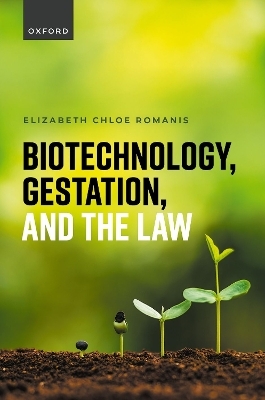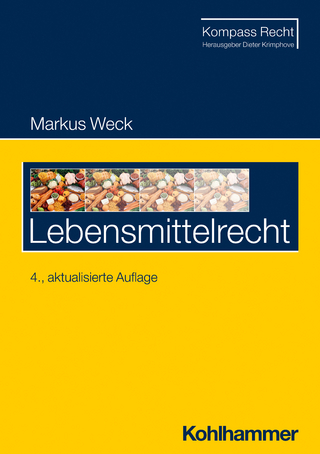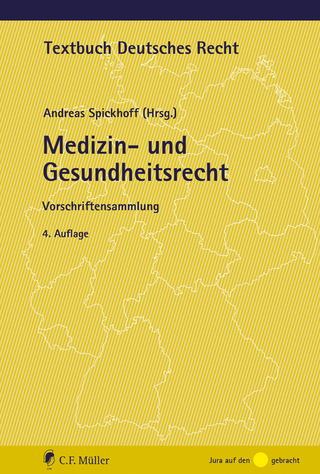
Biotechnology, Gestation, and the Law
Seiten
2025
Oxford University Press (Verlag)
978-0-19-887378-5 (ISBN)
Oxford University Press (Verlag)
978-0-19-887378-5 (ISBN)
- Noch nicht erschienen (ca. Januar 2025)
- Versandkostenfrei innerhalb Deutschlands
- Auch auf Rechnung
- Verfügbarkeit in der Filiale vor Ort prüfen
- Artikel merken
Biotechnology, Gestation, and the Law presents the first comprehensive ethico-legal analysis of the nature of gestation and of technologies enabling gestation, offering a concept analysis grounded in ontology, phenomenology, politics, and law.
We are all the result of gestation: the process of becoming before birth. The very nature of human gestation, however, has shifted and will continue to shift as a result of technology. Uterus transplantation and ectogestation, and the novel modalities of gestation beyond sex and beyond bodies that they potentially make possible, raise unique conceptual problems that have received little attention.
Biotechnology, Gestation and the Law presents the first comprehensive ethico-legal analysis of the nature of gestation and of technologies enabling gestation, offering a concept analysis grounded in ontology, phenomenology, politics, and law. The first three chapters develop a transdisciplinary approach for identifying and exploring the ethical issues raised by uterus transplantation and ectogestation. This addresses the ontological and legal confusion about what gestation is, how we should classify procreative technologies in relation to gestation, and why it is important to have precise classification. The remaining chapters use this framework to undertake a rigorous examination of pressing socio-legal implications of uterus transplantation and ectogestation: who has access to technologies enabling gestation and under what circumstances? Who is/are the parent/s when novel forms of gestation are used? How do these technologies disrupt our notions of reproductive biosex and are they tools of emancipation from gendered roles? This book, and the original conceptual lens it sets out, forges a new direction for legal and social reform directed at addressing the harms of constructed gendered procreative and parenting roles. In speculating about future possibilities, Elizabeth Chloe Romanis brings visibility to the oppressive propagation of biological essentialism that underpins the contemporary regulation of human procreation, and considers how to address this issue now and into the future.
We are all the result of gestation: the process of becoming before birth. The very nature of human gestation, however, has shifted and will continue to shift as a result of technology. Uterus transplantation and ectogestation, and the novel modalities of gestation beyond sex and beyond bodies that they potentially make possible, raise unique conceptual problems that have received little attention.
Biotechnology, Gestation and the Law presents the first comprehensive ethico-legal analysis of the nature of gestation and of technologies enabling gestation, offering a concept analysis grounded in ontology, phenomenology, politics, and law. The first three chapters develop a transdisciplinary approach for identifying and exploring the ethical issues raised by uterus transplantation and ectogestation. This addresses the ontological and legal confusion about what gestation is, how we should classify procreative technologies in relation to gestation, and why it is important to have precise classification. The remaining chapters use this framework to undertake a rigorous examination of pressing socio-legal implications of uterus transplantation and ectogestation: who has access to technologies enabling gestation and under what circumstances? Who is/are the parent/s when novel forms of gestation are used? How do these technologies disrupt our notions of reproductive biosex and are they tools of emancipation from gendered roles? This book, and the original conceptual lens it sets out, forges a new direction for legal and social reform directed at addressing the harms of constructed gendered procreative and parenting roles. In speculating about future possibilities, Elizabeth Chloe Romanis brings visibility to the oppressive propagation of biological essentialism that underpins the contemporary regulation of human procreation, and considers how to address this issue now and into the future.
Elizabeth Chloe Romanis is an Associate Professor in Biolaw at Durham Law School. In 2022-2023 she was a fellow-in-residence at Harvard University in the Edmond and Lily Safra Center for Ethics and Petrie-Flom Center for Health Law Policy, Biotechnology and Bioethics (Harvard Law). Chloe has published on reproduction and the body in leading journals in law, healthcare law, and bioethics including the Modern Law Review, Medical Law Review, Bioethics, and Journal of Law and the Biosciences. She published her first co-authored monograph, Early Medical Abortion, Equality of Access, and the Telemedical Imperative, with Oxford University Press in 2021.
| Erscheint lt. Verlag | 6.1.2025 |
|---|---|
| Verlagsort | Oxford |
| Sprache | englisch |
| Maße | 156 x 234 mm |
| Themenwelt | Naturwissenschaften ► Biologie |
| Recht / Steuern ► Allgemeines / Lexika | |
| Recht / Steuern ► EU / Internationales Recht | |
| Recht / Steuern ► Privatrecht / Bürgerliches Recht ► Medizinrecht | |
| Sozialwissenschaften ► Soziologie ► Gender Studies | |
| ISBN-10 | 0-19-887378-6 / 0198873786 |
| ISBN-13 | 978-0-19-887378-5 / 9780198873785 |
| Zustand | Neuware |
| Informationen gemäß Produktsicherheitsverordnung (GPSR) | |
| Haben Sie eine Frage zum Produkt? |
Mehr entdecken
aus dem Bereich
aus dem Bereich
Vorschriftensammlung
Buch | Softcover (2024)
C.F. Müller (Verlag)
55,00 €


